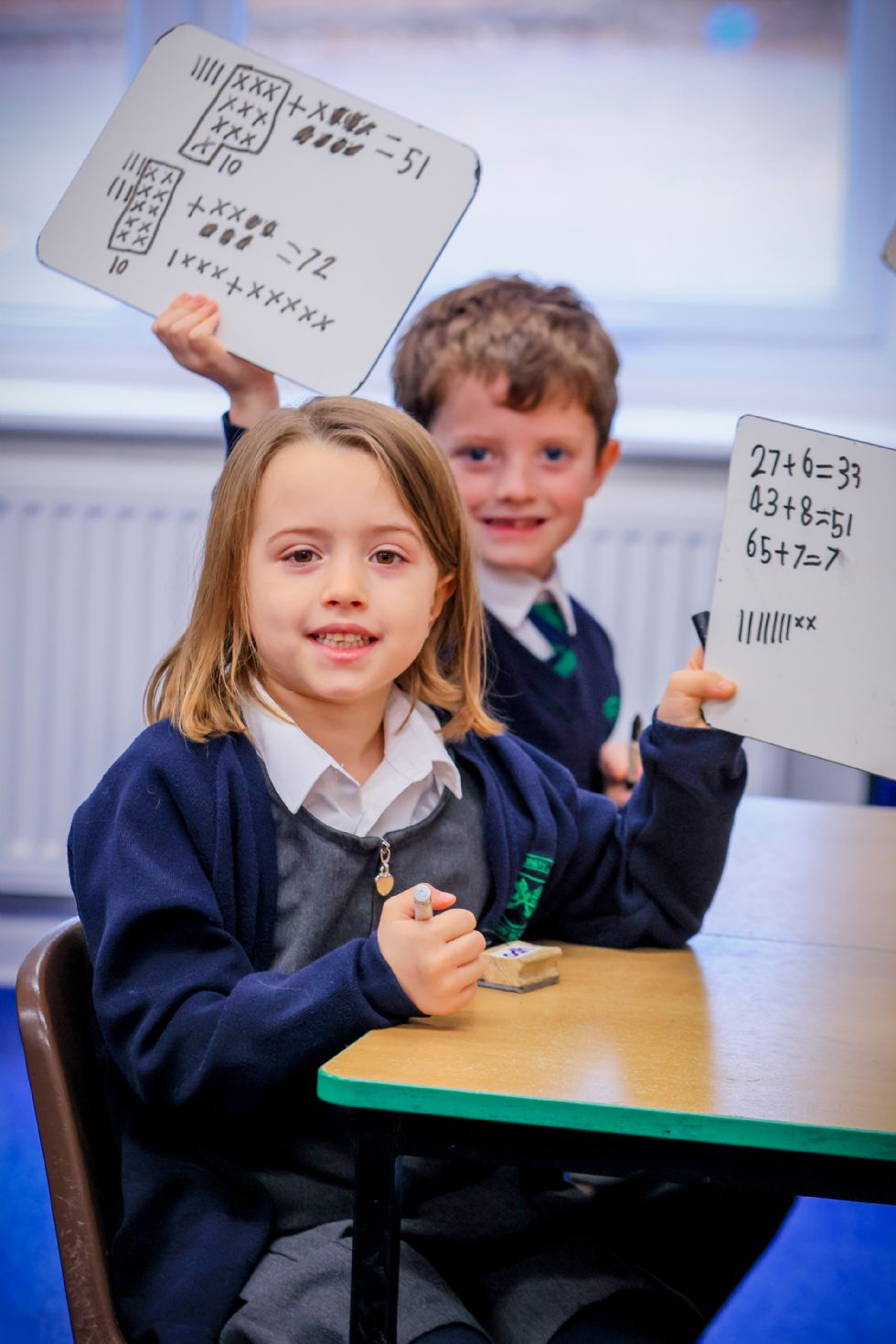Maths

Our intent at St. Edmund’s is to provide an outstanding mathematics curriculum for our pupils, following a mastery approach to learning and teaching. Mastering maths means pupils of all ages acquiring a deep, long-term, secure and adaptable understanding of mathematical procedures and concepts. We aim to build firm mathematical foundations through a diet of fluency, reasoning and problem-solving. As prescribed in the National Curriculum, our goal is to extend children through depth rather than acceleration.
In EYFS, teaching follows the EYFS framework and uses the White Rose Maths Hub resources.
In KS1 and KS2, we use the Power Maths scheme of work which ensures progression, coverage and depth of knowledge for all learners. Support and challenge are provided for all children through scaffolding, questioning and intervention.
Everyone can!
Children at St. Edmund’s are encouraged to have a growth mindset and that by working hard they can succeed. We foster a love of mathematics and want to change the belief that a large proportion of people ‘just can’t do maths’.
Whole-class teaching
Pupils are taught through whole-class interactive teaching, where the focus is on all pupils working together on the same lesson content at the same time. This ensures that all can master concepts before moving to the next part of the curriculum sequence, allowing no pupil to be left behind. If a pupil fails to grasp a concept or procedure, this is identified quickly and early intervention ensures the pupil is ready to move forward with the whole class in the next lesson.
Intelligent practice
It is recognised that practice is a vital part of learning, but the practice used is intelligent practice that both reinforces pupils’ procedural fluency and develops their conceptual understanding. Significant time is spent developing deep knowledge of the key ideas that are needed to underpin future learning. The structure and connections within mathematics are emphasised, so that pupils develop deep learning that can be sustained.
Structures and representations
Within their maths learning, children will use a range of concrete, pictorial and abstract representations; this is vital to develop a deep understanding of key concepts. For more details on the representations that we use, please refer to our calculation policies below.
Mathematical talk
Children will experience and use precise language. Mathematical terms are highlighted and clearly explained and children practise using this language in context. Children use full sentences to explain or respond in order to develop their reasoning and clarify their understanding. The use of stem sentences supports children to express mathematical concepts accurately and children are encouraged to repeat these frequently to embed their knowledge. Children have clear opportunities within their maths lessons to think and reflect, so that their talk is purposeful and develops mathematical thinking.
Fluency
Key facts such as multiplication tables and addition facts within 10 are learnt to automaticity to avoid cognitive overload in the working memory and enable pupils to focus on new concepts. These skills are practised in regular fluency sessions.
Pupils in EYFS and KS1 are following the NCETM’s Mastering Number programme – a short daily ‘number sense’ session – aimed at strengthening children’s fluency in calculation and their understanding, confidence and flexibility with number.
Pupils in KS2 practise multiplication facts and rehearse and strengthen their calculation skills. The 2014 Mathematics National Curriculum expects that by the end of Year 4, children will know all the time-table facts up to 12 x 12. We use a variety of approaches to support children in this, including the use of Times Tables Rockstars.
